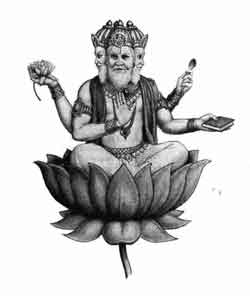boarder
King
PersianBoy said:he is simbol of nationalism in iran
fundamentals don't like
but modernists espicially nationalists like he very much
he remembered as a person who nationalize oil resources and stand before king foe sake of poeple
Interesting, I guess the fundamentalists don't like him because of what he stood for?
I don't see why they would have a problem with him, could you explain why to me?
For those wondering who Mossadeq was, heres a brief background.
Mohammed Mossadeq was born on May 19, 1882, the son of a Qajar princess and an Iranian finance minister. His upbringing was one of privilege but belied his concern for justice and the common man. Educated in Paris and Switzerland, Mossadeq received a Ph.D. in law in 1913 and shortly after wrote the first of his many books, "How Iran Can Grow". When Dr. Mossadeq returned to Iran in 1914, he began a campaign against government waste and corruption. Various political involvements over the next few years saw him take the post of finance minister in 1922. He opposed the dictatorial rule of Shah Reza Khan and for that was arrested and released only to be placed under house arrest. Many years later, in 1941 in what can only be seen as a satisfying twist of fate, Mossadeq was able to return to public life with the abdication and exile of Reza Khan. He was then elected First Deputy from Tehran but failed at his bid for re-election to parliament because of voter fraud. It was this subsequent parliament which gave further oil concessions to Great Britain. Mossadeq was again elected to parliament after fraudulent ballots were disqualified. Throughout WW II, Mossadeq fought against foreign presence in Iran and was outspoken about matters of Iranian oil.
After World War II, Dr. Mossadeq headed up the Majlis (Iranian parliament) Oil Committee, which studied the oil agreements imposed on Iran by Great Britain during the last 45 years. On Nov. 25, 1950, the specific Supplemental Agreement was put to a vote and Mossadeq's influence resulted in a "no" vote. Mossadeq was now providing the backbone with which Iran would attempt to reclaim its self-destiny. On March 15, 1951, the Iranian parliament voted to nationalize Iran's oil industry and on May 6, parliament elected Mossadeq the Prime Minister of Iran.
Mossadeq was now at the height of his popularity. In his book, "Iran and the Capitulation Agreements", Mossadeq wrote that “Iran could develop modern, European-style legal and political systems if it took one vital step. It must impose the law equally on everyone, including foreigners, and never grant special privileges to anyone.” He was a world-renowned figure and champion of justice, democracy, and his nations' interests. His influence was so great that in 1951 Time Magazine chose him over Harry Truman, Dwight Eisenhower, and Winston Churchill as its Man of the Year. Taken in the context of the American viewpoint of the time and with America's soon-to-follow overthrow of the man, the article was not totally flattering, but remains a high watermark of Mossadeq's influence on world politics.
Now the legacy of Dr. Mossadeq turns from that of a champion fighting in the best interests of his country, to that of tragic figure. In 1953, the CIA and British intelligence toppled the government of Mossadeq in an organized coup d'etat (Operation TPAJAX) that installed Mohammed Reza Pahlavi, the Shah of Iran, into power. With Britain at risk of losing its vested oil interests in Iran, they convinced American president Dwight Eisenhower to come onboard for a coup using the "Soviet threat" angle. America was soon in charge. There is little evidence to suggest that the Soviet Union had designs on Iran as they had withdrawn from Iran only a few years earlier. Former president Harry Truman saw no similar threat and had previously turned down the British request to oust Mossadeq over the oil issue or any issue -- but this was the era of the Rosenberg's and Joe McCarthy and Britain found a willing participant in Dwight Eisenhower for the ousting of Mossadeq. There is also little evidence to suggest that Mossadeq would in any way acquiesce to any Soviet interference. Indeed, that suggestion goes against everything known about Mossadeq to this day.
After the coup d'etat, Dr. Mossadeq was imprisoned for 3 years and following that placed under house arrest by the Shah until the day he died in 1967.

 needed for better life in Iran but every revolution is a movement forward better life and freedom
needed for better life in Iran but every revolution is a movement forward better life and freedom










 ) :
) :